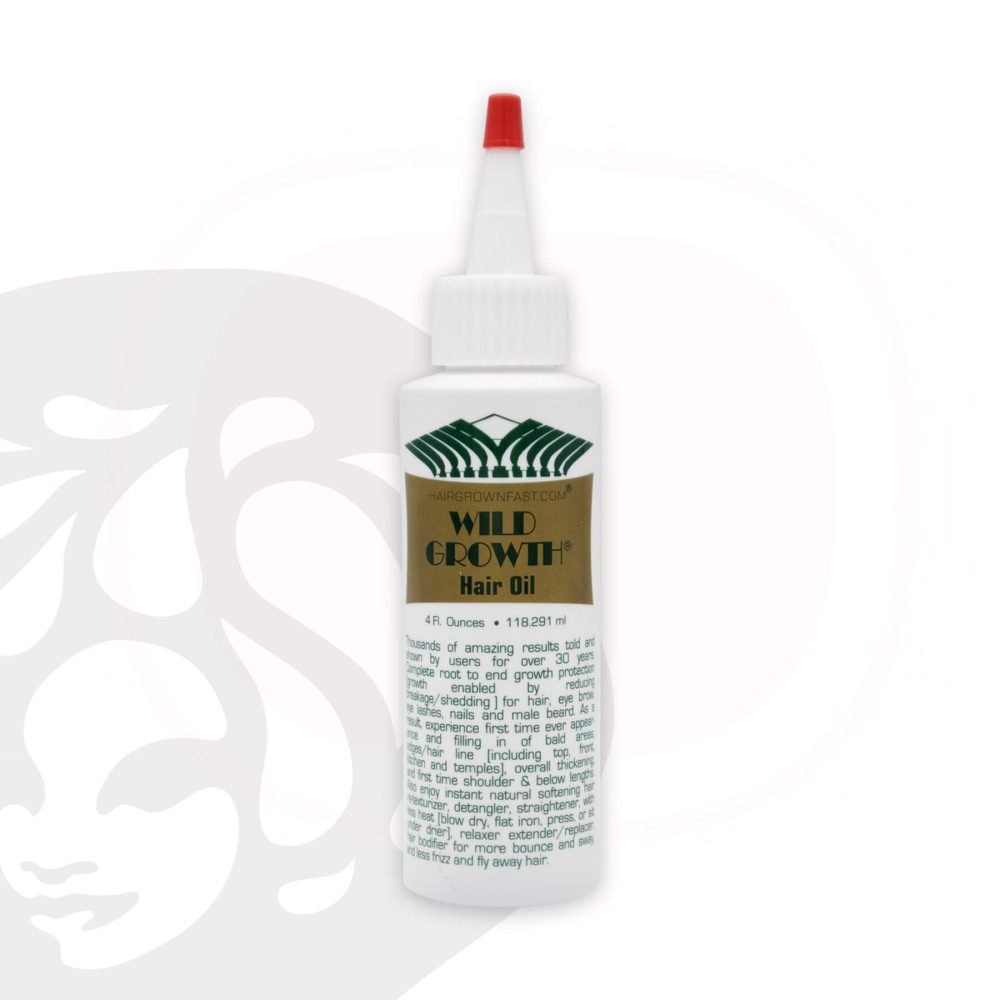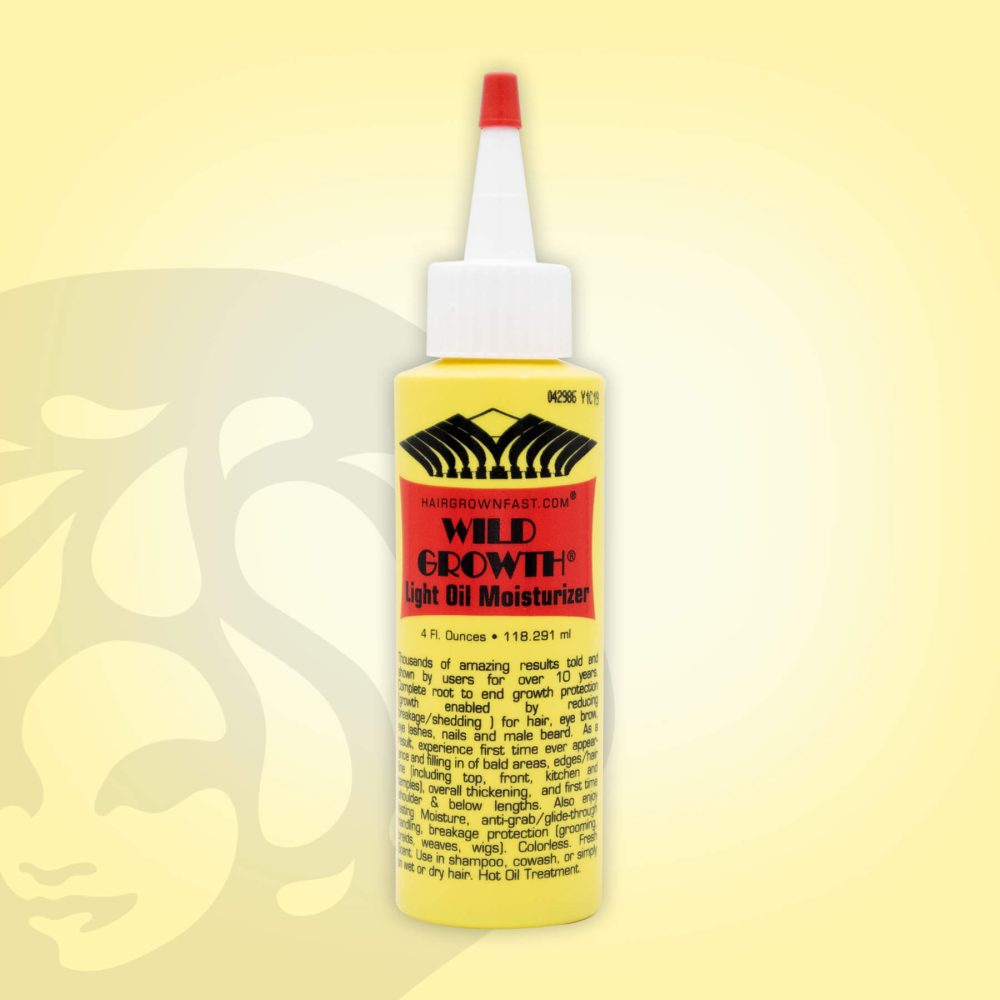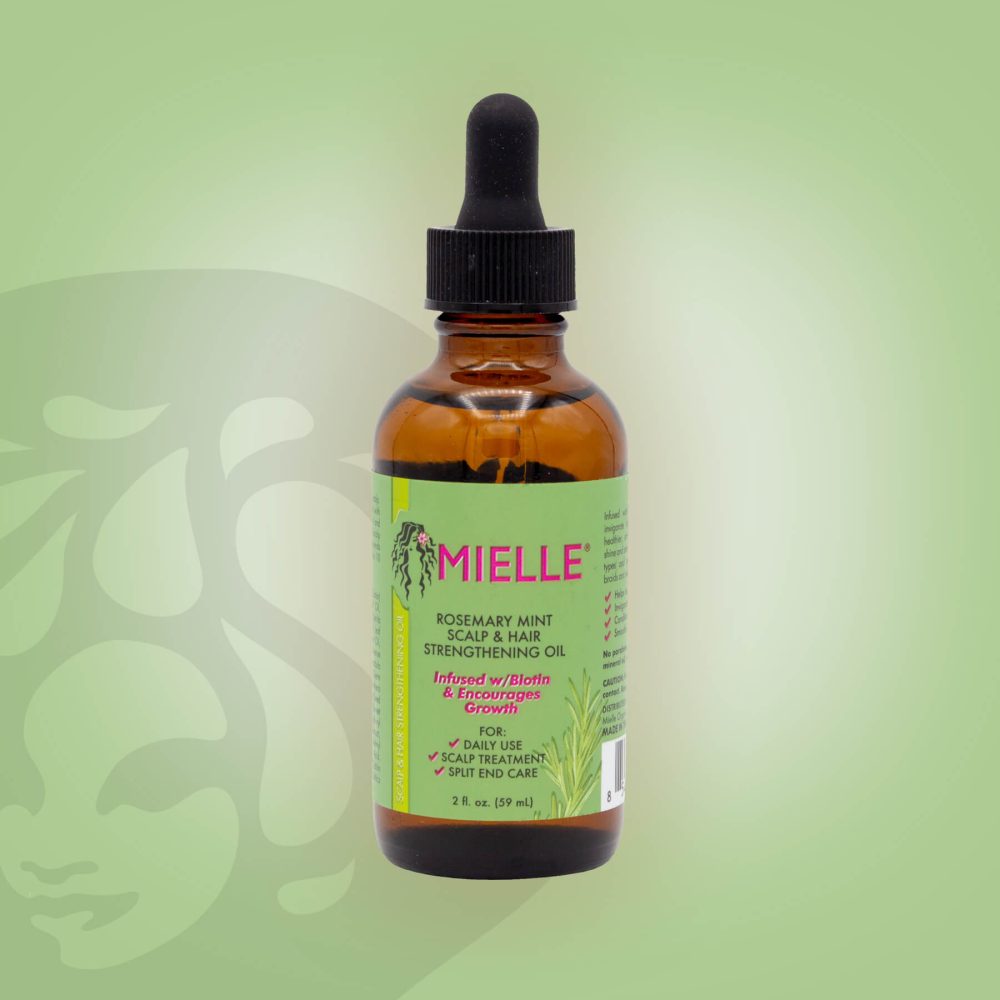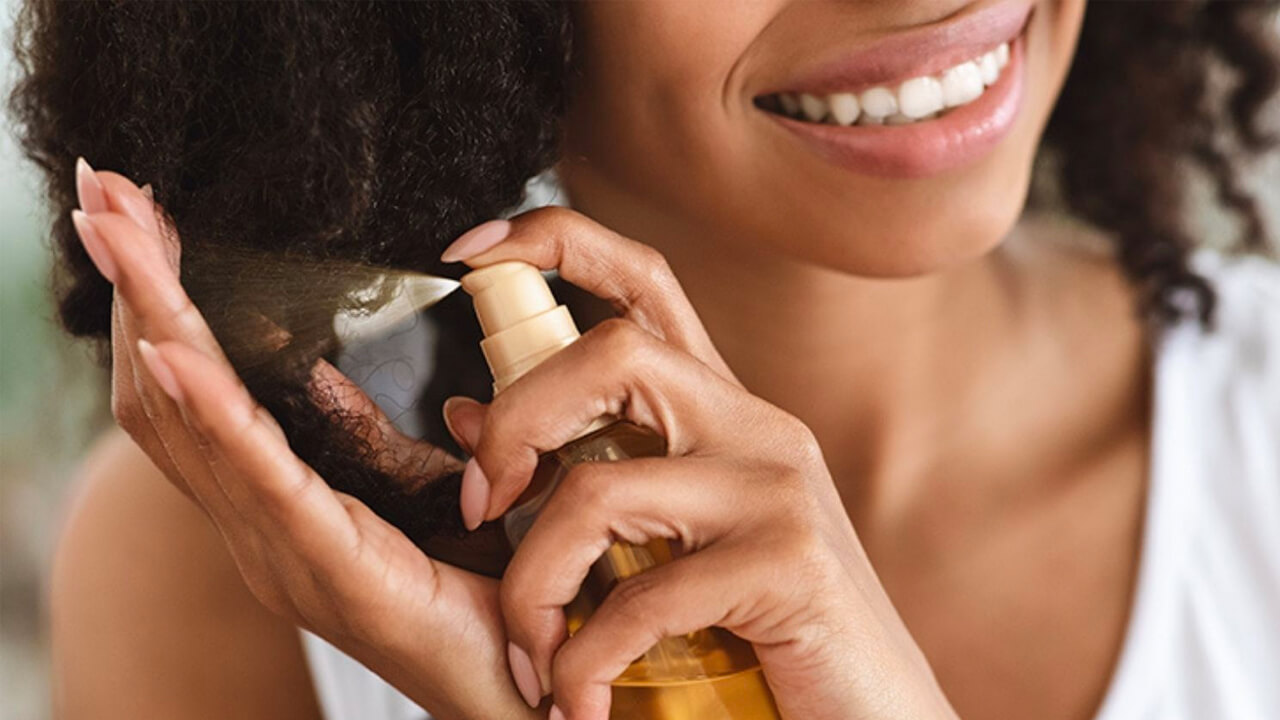We’re wiser now, only searching for healthy options for our hair. We’re not running back to haircare brands that dehydrate and cut our natural tresses. We’re never going back there!
If you’re joining the natural hair crusade now, you’re just in time as the market has so many natural products.
First…
Create space on your counter or cabinet. Sweep out the lot that doesn’t hydrate your hair.
But before you do that, let’s discuss a few things about natural oils, starting with:
Do hair oils help with hair growth?
Here’s how natural oils work. When you lubricate your hair shafts, there’s less friction between your hair and the brush, which means minimal hair breakage or damage. That’s how you maintain length because new growth stays on your head, not on your hairbrush.
Research on the effect of oils on hair growth is ongoing. One such study on mice confirmed that peppermint oil induces thick and long hair after a four-week application. It relaxes the muscles of the arteries to promote blood circulation.
So:
Which oil boosts hair growth?
Before we talk about oils in the market, let’s discuss a few factors to guide you as you choose an oil.
First:
What does your hair need?
If you’re treating a dry scalp with inflammations, you’re not looking for the same product as someone looking for growth. Additionally, if you’re looking for hair volume, it’s a different need from someone seeking protection when heat styling.
Once you narrow your hair needs down, you are ready to go shopping.
Hairstyle
You see, hair oils have different properties. For instance, coconut oil fights frizz; consequently, you can use it on an afro. You’d need such an oil when brushing your hair daily as it’ll give it slip and shine.
Hair porosity
If your hair doesn’t absorb moisture, it doesn’t absorb nutrients fast. Therefore, such low porosity hair needs a lightweight oil that doesn’t weigh down hair already suffering from low moisture.
Now we can talk about:
Natural oils for curly hair
Coconut oil
Coconut oil can moisturise and seal your hair as it penetrates the shaft slightly. I love it for that. The sealing ability of this oil also prevents moisture loss in high porosity hair.
But, be careful about the moisture/protein balance when choosing coconut oil. Without proteins, you’re likely to experience hygral fatigue where the hair absorbs too much moisture and swells. If there’s less moisture, you’ll have dry hair.
A simple test using a raw egg applied to a section of hair can confirm if your hair is protein-sensitive.
A simple test using a raw egg applied to a section of hair can confirm if your hair is protein-sensitive. If that section of hair feels drier than the rest, it’s protein sensitive. On the other hand, if it’s still hydrated, you can use coconut oil.
Olive oil
This oil also penetrates the outer layer of hair shafts, more so when used on wet hair. The outcome is softer, manageable hair with natural shine.
Avocado oil
Avocado oil is excellent in pre-poo deep conditioning treatments. The fatty acids in it strengthen your hair to reduce breakage when styling.
Let’s look at a few hair growth oils to show you what’s in the market for curly and coily hair.
Wild Growth Hair Oil
It detangles and softens.
So, what’s in it? It has coconut, olive, jojoba, and peppermint. That means you’ll moisturise and seal your hair with Wild Growth oils
Our Best selling Wild Growth oils
Wild Growth Hair Oil
£9.99Mielle Organics
Its list of ingredients has a variety of excellent oils, both as sealing and moisturising agents. You’ll be massaging your hair and scalp with coconut, peppermint, castor, rosemary, sweet almond oils, among others. Some of the benefits are soft, smooth, manageable hair.
Mielle Organics Rosemary Mint Scalp & Hair Strengthening Oil
£10.99This is the hair and scalp oil that’s SO GOOD you keep it hidden from your friends and family. It smells refreshing, strengthens hair, helps prevents breakage and has a great cooling sensation too. Oh, it’s loaded with incredible ingredients too. It’s an absolute gem and perfect for protective styling.
OKAY Pure Olive Oil
It’s 100% pure olive oil that’ll bring its moisturising properties to your shafts.
Avocado Oil
Avocado is lighter than the other options above. Plus, your hair absorbs it fast, without greasy residue.
Do oils moisturise hair?
Yes, they do. Curly and coily has a structural disadvantage that prevents sebum on the scalp from reaching the tips of hair shafts.
Such hair lacks moisture; therefore, oils replenishes it and reduce breakage when styling.
For low porosity hair, apply a moisturising oil before a sealing oil. For example, start with oil, coconut or avocado oils, then seal the moisture with jojoba, grapeseed or Jamaican black castor oils.
Also:
Should I apply oils to my hair or scalp?
There are so many ways to answer this question.
First, the scalp produces sebum, which means overusing natural oils is likely to clog your pores. Also, this attracts dirt and causes a build-up that may exacerbate flakes.
If you have a dry scalp, massage it with oil to prevent flakes and boosts blood circulation. Don’t forget to oil your hair to give it moisture and slip.
Wouldn’t you love to show off healthy curls?
I can’t get enough of Cynthia Andrew’s curls over @ Simplycyn.
She’s creative. Cornrows, braids, afro… everything!
https://www.instagram.com/p/CPYlCdxrKt4
In conclusion:
Final thoughts
Oils give your hair shine and volume. If you’re working with damaged hair, you’ll see it change as the natural oils maintain length and health. Plus, you’ll seal it to protect it when heat styling.
There are moisturising and sealing oils. Some, such as coconut oil, do both. They smoothen your hair and maintain its moisture level. Do you need that?





